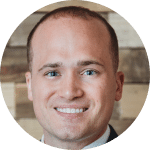
In many areas of life, intense activity and focus, often called a “flow state” in psychology, represent the path to success. Successful investing turns that approach on its head. Warren Buffett has a great quote on this: “Money is like a bar of soap the more you touch it, the less you’ll have.” (See 15 timeless Buffett quotes here.)
Investing Science & Accepting Uncertainty
Investing is one area where constant activity and a sense of control are not well correlated. If you or your advisor are forever tinkering with your portfolio, you are most likely mistaking activity for control or potentially gambling with your money. You’re making your soap shrink.
When you plant a tree or shrub, you choose a sunny spot with good soil and water. Apart from regular watering, pruning, and fertilizing, you leave it to grow. Investing is similar but presupposes you followed a science-based investing strategy and thoughtful process to select your investments (ingredients) and assemble them in your portfolio allocation (recipe). If you did not, a remake of your investing landscape may be required. (Read more on the essentials of asset allocation here.)
Financial science and experience show that our investment efforts are best directed toward areas where we can make a difference and away from things we can’t control. We can’t predict short-term market movements. We can’t predict news. If you believe news impacts markets and cannot predict the news, ergo you cannot predict markets—darn logic strikes again.
Investors Should Focus on What Can Be Controlled
On the other hand, you can control how much risk you take. You can diversify those risks across different assets, strategies, companies, sectors, and countries. You have a say in the costs you pay. You can exercise discipline to counteract emotional impulses. Perhaps most importantly, you can have a well-constructed and regularly monitored financial life plan coupled with a science-based investment strategy that is well-aligned to meet goals. If alignment doesn’t exist, you may blindly throw a dart at the dartboard.
These principles may be hard to absorb because the financial media is geared around the short-term, the recent past, the ephemeral, the narrowly focused, and the quick fix. While it’s understandable that we want to feel a sense of control, we have to tune out the media. As investors, we have to accept uncertainty. At best, we can tilt probabilities in our favor.
Investor’s Serenity Prayer
There serenity prayer comes to mind, “Grant me the serenity to accept the things I cannot change, The courage to change the things I can, And the wisdom to know the difference.”
Soaping down your money comes predominantly from a lack of diversification, poor timing decisions, and high investment costs. This results in earning lower returns than you should. In fact, investors tend not to even earn returns their own funds deliver.
Mind The Gap
Morningstar does a yearly “Mind The Gap” study. The gap is the annualized return difference between what the fund earns and what the investors in the fund earn. Findings from the 2023 Mind the Gap study show:
“Fund investors earned a 6% investor over the 10 years ended Dec. 31, 2022, while their fund holdings generated a 7.7% annual total return over the same period. Thus, investors suffered a 1.7 percentage point annual return shortfall, or gap, stemming from mistimed purchases and sales. This annual return gap is in line with the gaps we measured over the four previous rolling 10-year periods, which ranged from 1.5 to 1.7 percentage points per year. Investors have also struggled to use sector and nontraditional equity funds successfully (both more narrowly focused strategies); these two category groups experienced wider-than-average return gaps.”
Final Thoughts
Warren knows financial science and these gap studies. He just has a much better way of analogously communicating it.
Be careful not to soap down your money. And be mindful of guru who will supposedly protect you from the falling knife. While luck does exist, it is not a sound strategy. Rather, you will most often find the guru does not have the ‘gu’ or the ‘ru’ you had hoped for. You’re simply left to accept financial science and the proper watering, pruning, and fertilizing of your portfolio strategy.
If you’re not sure the investment landscape you planted was sensible, you can always get a second opinion from a highly qualified professional that follows financial science and a prudent investing process.
Kevin Kroskey CFP® | True Wealth Design | December 2023
Disclaimer: Content in this material is for general information only and not intended to provide specific advice or recommendations for any individual. All investing involves risk including loss of principal. No strategy ensures success or protects against loss.



